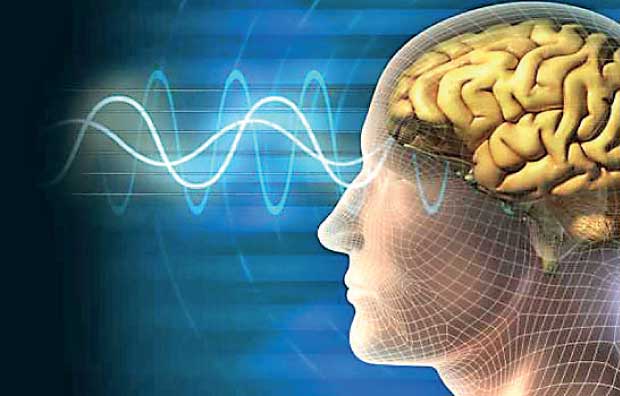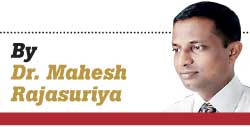Reply To:
Name - Reply Comment
Last Updated : 2024-04-23 11:51:00

 Just because you have symptoms of diabetes, such as a frequent passing of urine or excessive thirst, a physician can’t be certain it is diabetes.
Just because you have symptoms of diabetes, such as a frequent passing of urine or excessive thirst, a physician can’t be certain it is diabetes.
Your physician would ask you to do a blood test to detect the glucose level in your blood a few hours after your last meal. With the result of this test, and further tests, you will be told if you have got diabetes or not. If your blood glucose level is above a certain number, it is valid to say that you have got the illness.
Now, what happens if you think you have a mental illness?
A psychiatrist would listen to you, maybe even talk to your family, and then magically say “you have got depression” or “No, I don’t think you have a mental illness.”
There are no blood tests, no brain scans, just talking and then making a diagnosis. How can they? Or, are psychiatrists capable of making a diagnosis at all?
Let’s explore the physician’s task in making a diagnosis, again.
Do not forget all doctors, lawyers and engineers and other professionals, not only psychiatrists, are interested in making money; and some of them are keen in making more and more
When you go to the physician and report your complaints, the full picture of what’s happening in your body has to be assessed. So, in addition to listening to you or asking questions from you, you would be examined. Your blood pressure is checked; you are asked to get on the bed and hands laid on your tummy to feel the insides. And then, you would be asked to do some blood tests, or X-rays and even scans. All this is to get a clearer and more accurate picture of what is happening in your body.
So, a general physician or an endocrinologist, or any other doctor for that matter, tries to get an accurate picture of what is happening inside the patient’s body before making a diagnosis.
Can a psychiatrist do that? Do they even come close to asking for all those tests to be done and making physical examinations?
Actually, the question does not apply to psychiatrists in the same way. They need to find out what is going on inside the mind or the brain of the patient.
Can a psychiatrist do that? Can anyone do that? Surely, if they did, it is basically mind reading! And, you need a sixth sense for that; only the rishis and freaks in science fiction movie can do that!
Psychiatrists have had a mighty problem about diagnosis for a long time. As they have no way to know what is going inside the mind of a person, they are not sure of their diagnosis, except in extreme cases. When it comes to an extreme situation in a person then frankly anyone could read that person’s mind.
Let’s look at an example to understand this well. Say, a man talks to himself from time to time, and smiles, too, not relating to any person or thing. His family is watching him and gets worried that he has a mental illness.
· He could be having hallucinations, voices talking to him, to which he responds.
· He could be recalling past memories and smiling due to emotions brought by memories or he could be thinking aloud, literally; he could be reciting some religious scriptures to accrue merit.
Well, you can ask the man. Psychiatrists do that, too. However the man may say that he is just planning the day and tells himself the important things he has to do so it goes into his memory.
However, it appears he has given up his job lately. He says he is looking for another, but….
Now, how does the psychiatrist find out if the man actually hears voices? The man may say he hears voices, but then he may be trying to evade arrest and remand due to the recent financial fraud he was involved in.
Now read this - what comes to the help of the psychiatrist in this instance, similar to the blood glucose test to the general physician, or a scan to the gynaecologist, is a clinical tool every psychiatrist possesses.
It’s called ‘empathy’. This has little to do with the plain English meaning of the word. This tool does not have a long history, and it is unique to psychiatrists.
In the early Twentieth Century, psychiatrists, psychologists and even philosophers were searching for a model to understand mental illness.
They, sadly, got lost in the complex world of causation of mental illnesses. Those illnesses were more complicated than the prevailing physical illnesses of that time called ‘infections’.
Mental health specialists found a smarter way to understand mental illnesses. They started to forget about the causation of illnesses, which is called etiology, and started to concentrate on the signs and symptoms of illnesses, which is called psychopathology. That is describing mental illnesses, instead of trying to explain them.
This was the origin of the modern day psychiatry.
This was also the end of the dark era of psychiatry as depicted in the movie One Flew Over the Cuckoo’s Nest.
This actually marked a shift of paradigms, from explanatory psychopathology and Freudian psychoanalysis to descriptive psychopathology or phenomenological psychopathology.
Suddenly references to Sigmund Freud and his work in psychiatry dropped to almost zero.
Trainees in psychiatry now spend their first year learning the basics of this unique clinical tool called ‘empathy’. Then they take a lifetime to master it.
The clever students and doctors master it fast, and that is a diagnostic skill. The more experienced clinician starts ‘reading the mind’ of the patient from the moment he or she enters the consultation room.
So, when the ‘patient’ says that two people are talking about her/him, even in the privacy of the bedroom, the psychiatrist starts to try and experience what it is like to hear voices of two guys when there is only one person in the room.The ‘patient’ goes on telling the psychiatrist “it is scary, it is disgraceful, how dare people make me hear what they talk about in this intrusive manner”
Anger, irritation, fear, confusion, perplexity dare what any person, including the psychiatrist, feels, if subject to such a situation.
So, if that is what I feel, the psychiatrist automatically and effortlessly does this, and therefore this is how the patient in front of me should feel as well.
That is how this ‘empathy’ clinical tool works. The last stage of it is verification. The psychiatrist now checks if the patient is perplexed. How the psychiatrist exactly tries to feel what the patient feels is a bit too complex to describe here.
This ‘empathy’ as a clinical tool is not 100% accurate, but neither is the blood glucose test.
The accuracy of the psychiatric diagnostic process is further increased by advanced history making techniques. Ultimately the psychiatrist creates an aerial picture of the story of the patient. It is needless to say,this modern diagnostic process of psychiatry is miles ahead of the olden ways of diagnosing patients.
Just like the general physician tries to get a more accurate picture of what is happening inside your body, the psychiatrist tries to get a more accurate picture of what is happening in your mind/ brain. Both are difficult tasks. Perhaps the latter more than the former.
Many patients, who go to doctors, any doctor, are not really patients. They have symptoms, and it is the doctor’s job to tell the person if he/she is actually a patient or not.
In today’s profit-oriented world, doctors may be pressurised to ‘produce’ more patients. In that case, doctors who are supposed to diagnose physical illnesses as well as psychiatric illnesses, may ‘convert’ life’s normal problems into diseases: hunger expressed as stomach pain to gastritis; heartache expressed as sadness to depression; heartache expressed as chest pain to acute coronary syndrome; or heartache expressed as headache to potential brain tumour.
So, the next time you walk into the room of a psychiatrist, have less anxiety and a deeper understanding about the diagnostic process.
Do not forget all doctors, lawyers and engineers and other professionals, not only psychiatrists, are interested in making money; and some of them are keen in making more and more.

Add comment
Comments will be edited (grammar, spelling and slang) and authorized at the discretion of Daily Mirror online. The website also has the right not to publish selected comments.
Reply To:
Name - Reply Comment
On March 26, a couple arriving from Thailand was arrested with 88 live animal
According to villagers from Naula-Moragolla out of 105 families 80 can afford
Is the situation in Sri Lanka so grim that locals harbour hope that they coul
A recent post on social media revealed that three purple-faced langurs near t

21 Apr 2024